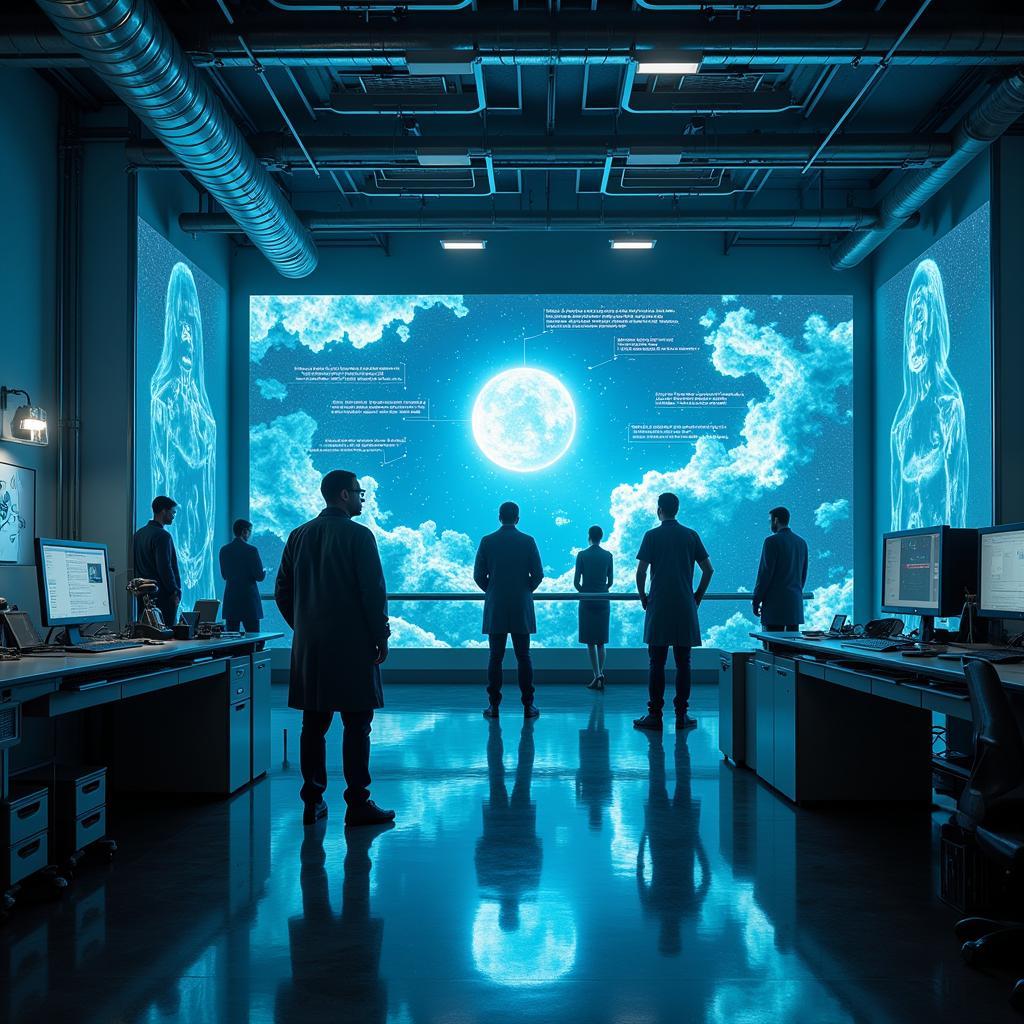The quest to understand the unknown has captivated humanity for millennia. In our pursuit of knowledge, we often find ourselves navigating the intricate pathways of “Theoretical Research Vs Empirical Research.” This is especially true in the realm of paranormal investigation, where the line between speculation and evidence can be difficult to define.
Theoretical Frameworks in Paranormal Investigation
Theoretical research forms the bedrock of our understanding of the paranormal. It delves into existing knowledge, proposing explanations and frameworks for phenomena that challenge conventional science. Think of it as building a blueprint based on historical accounts, folklore, and even religious texts.
The Importance of Interdisciplinary Approaches
One of the most intriguing aspects of theoretical research in this field is its interdisciplinary nature. For example, investigating a haunting might require drawing upon:
- Psychology: Understanding the power of suggestion and human perception.
- Physics: Exploring theories about energy, dimensions, and the nature of reality.
- Sociology: Examining the cultural and societal influences on belief systems.
This multi-faceted approach allows researchers to connect seemingly disparate dots, potentially revealing hidden patterns and insights.
Empirical Research: Seeking Evidence of the Unknown
While theoretical research lays the groundwork, empirical research seeks to test those theories through observation and experimentation. In the world of paranormal research, this often involves:
- Field Investigations: Visiting reportedly haunted locations, utilizing tools like EMF readers, EVP recorders, and thermal cameras to collect data.
- Experimental Studies: Designing controlled experiments to test specific paranormal hypotheses, such as telepathy or psychokinesis.
- Data Analysis: Meticulously examining collected data for statistically significant anomalies or patterns that might suggest paranormal activity.
Challenges and Limitations
Empirical research in this field is fraught with challenges. The subjective nature of many paranormal experiences makes it difficult to establish standardized protocols. Additionally, the lack of consistent, replicable results often leads to skepticism from the scientific community.
Bridging the Gap: Where Theory Meets Evidence
The key to advancing our understanding of the paranormal lies in bridging the gap between theoretical and empirical research. This involves:
- Developing testable hypotheses: Theories should give rise to specific, measurable predictions that can be investigated through empirical means.
- Refining methodologies: Paranormal investigators need to continually refine their techniques, ensuring rigor and objectivity in data collection and analysis.
- Open communication: Fostering dialogue between researchers from various disciplines, including skeptics and believers, can lead to more robust investigations.
 The Future of Paranormal Research
The Future of Paranormal Research
Conclusion: The Ongoing Exploration
The debate of “theoretical research vs empirical research” in the paranormal is not about declaring a victor. Instead, it highlights the need for both approaches to work in tandem. By embracing the unknown with both curiosity and skepticism, we can continue to push the boundaries of knowledge and unravel the mysteries that lie beyond our current understanding.
FAQs about Theoretical and Empirical Research in Paranormal Investigation
1. What is an example of a theoretical concept in paranormal research?
One example is the concept of the “astral plane,” a realm of existence beyond the physical that some believe we can access through altered states of consciousness. This concept is explored in various spiritual traditions and serves as a theoretical basis for understanding out-of-body experiences and other phenomena.
2. Can empirical research definitively prove or disprove the existence of ghosts?
This is a complex question. While empirical research can provide evidence that suggests paranormal activity, it’s often difficult to definitively prove or disprove the existence of ghosts. Many factors can contribute to ambiguous results, and interpretations of data can vary.
3. How can I get involved in paranormal research?
Many local paranormal investigation groups welcome newcomers. You can also contribute to the field by studying relevant disciplines like psychology, physics, or history.
4. What are some reputable resources for learning more about paranormal research?
Organizations like the Society for Psychical Research and the Parapsychological Association offer resources and publications on various aspects of paranormal research.
5. Is it dangerous to engage in paranormal investigation?
While many find paranormal investigation fascinating, approaching it with respect and caution is essential. Be mindful of safety precautions and avoid investigations alone, especially in potentially hazardous locations.
If you’re interested in learning more about paranormal research, check out our articles on NASA Dryden Flight Research Center and Runway Research. These articles delve into the intersection of science and the unexplained, offering intriguing insights into the world of paranormal phenomena.
For those eager to explore further, our website features articles on NASA Armstrong Research Center and Flight Research Inc, offering additional perspectives on the quest to understand the unknown.
Need help with your own Paranormal Research? Contact us at:
Phone Number: 0904826292
Email: research@gmail.com
Address: No. 31, Alley 142/7, P. Phú Viên, Bồ Đề, Long Biên, Hà Nội, Việt Nam.
Our team is available 24/7 to assist you.